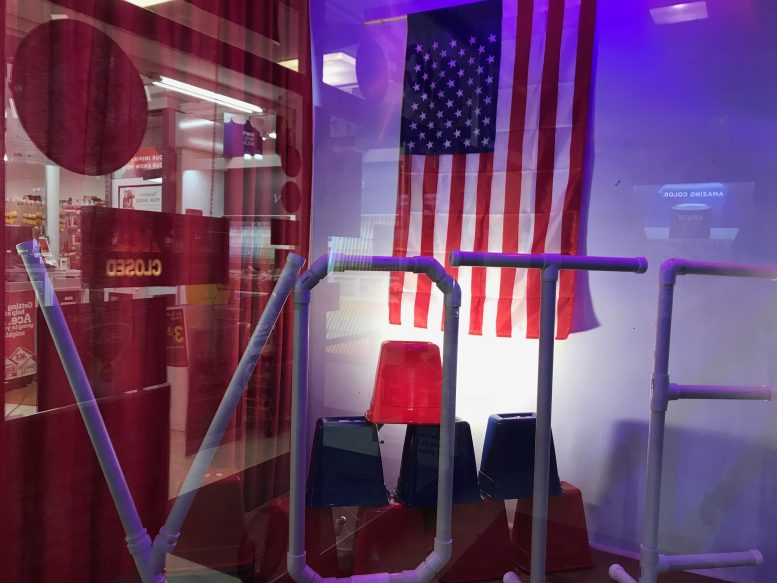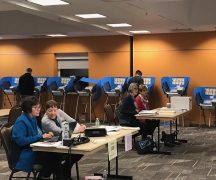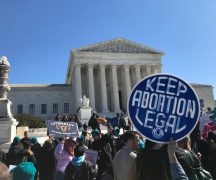Ohioans need to have an urgent, nonpartisan, consensus-driven conversation about a subject we rarely talk about: our state’s woefully lackluster voter participation.
Despite Ohio’s longstanding reputation for being the nation’s election barometer, when it comes to our record of showing up at the polls, “so goes Ohio” is not what we would ever wish for the rest of the country.
But the fault is not an apathetic electorate. Instead, the root of the problem is Ohio’s lack of commonsense modernizations that would make it easier for eligible citizens to register to vote, have their voices heard and their votes counted.
Ohioans deserve an election system that is geared toward broad inclusion, ensuring that every eligible voter can cast a secure ballot.
During the much-hyped 2018 midterms, turnout in Ohio just barely cracked the 50-percent mark, ranking us 29th among the 50 states and the District of Columbia in voter participation.
The reality is Ohio has consistently had one of the worst election participation rates in the Midwest, lagging up to 14% behind some other states in the region, and Ohio’s young adult turnout is among the worst in the nation. In 2018, only 22% of voters age 18 to 24 cast a ballot, compared to 47% in Wisconsin and 33% in Michigan.
That’s as embarrassing as it is unnecessary. All eligible citizens among us — Republicans, Democrats, minor party members, and independents — deserve to participate in the democratic process, to have our votes secured and counted.
Fortunately, we need only look to other states to see the smart reforms they’ve adopted. Their citizens are not more civic-minded than Ohioans. No, these higher-turnout states — red, blue, and purple ones — have just removed the outdated barriers that kept many eligible voters out of the process.
Consider the ignoble fact that Ohio has the most restrictive registration deadline in the country, 30 days before an election, which is the longest period allowed by federal law. That’s absurd. We need to enter the modern world and do what 20 states plus the District of Columbia do already — let voters register anytime, including on Election Day. It’s the current practice in red states like Idaho, Utah, Montana and Wyoming; blue states like Maryland, Vermont, Colorado and Washington; and swing states like Iowa, Wisconsin, North Carolina and Michigan. It’s the accessible approach that states, of all political leanings, are increasingly adopting. Ohio should get on board.
We also need to fulfill the recommendations made by Secretary of State Frank LaRose to keep voter rolls up to date by giving voters the opportunity to be registered to vote when they interact with the Ohio Bureau of Motor Vehicles.
We must also ensure that opportunities for early voting are honored, protected and robust, including the consistent availability of evening and weekend voting hours.
By the same token, we need to take necessary steps to ensure the integrity of our elections. We need to audit results with sufficient rigor to ensure the accuracy and trustworthiness of our results.
In short, we need to implement fair rules that remove barriers and make voting secure so that “We, the people” are heard on Election Day.
When we think about registering to vote — and voting itself — we often fail to think about remote rural voters who live many miles from their county Board of Elections office or polling place; the single parent who works two jobs and relies on public transportation on Election Day; or young military families who move often and need to re-register frequently to remain eligible to vote.
We need to make sure that these historically disenfranchised voters — people of color, people with disabilities, military service members, and the youngest and oldest voters — are able to keep their registrations updated and current. When you’re home-bound, or in college, or stationed overseas, that sometimes can be difficult to do. But these difficulties shouldn’t diminish your constitutional right to have your vote counted.
For too many of us, our trust in the election system has been shaken. We can all work together to restore that trust — not with a partisan motivation, but with a mindset focused on security and fairness for all.
Many states are doing this, by implementing reforms to ensure that elections are both secure and fair. In 2018, Michigan enacted a broad set of important measures that are already being put in place without problems. Ohio must do the same.
By making voting more accessible, our democracy will better serve all Americans,
Ensuring eligible citizens are able to cast a vote — without cumbersome barriers and restrictions — is the all-inclusive way. It’s the Republican way, the Democratic way, the Libertarian way. It’s the American way. Let’s help all Ohioans vote.
***
J. Bennett Guess is the Executive Director at the ACLU of Ohio where he is responsible for leading the statewide organization to fulfill its mission to expand and protect civil liberties for every Ohio resident, with a specific focus on sentencing reform, bail reform, election modernization, LGBTQ rights, and reproductive justice. Before joining the ACLU, Ben held a number of high-level positions with the United Church of Christ’s national headquarters, based in Cleveland. Guess is a graduate of the University of Kentucky with a B.A. in journalism. He completed graduate studies in public administration at Murray State University, and earned a Master of Divinity at Vanderbilt University and a Doctor of Ministry at Chicago Theological Seminary. Currently he is traveling all across Ohio for a 20-City Statewide Immersion Tour to celebrate the ACLU’s 100th birthday.





